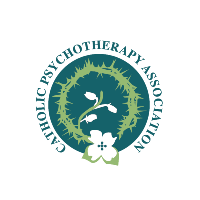
- 904.420.0536
The presentation uses lecture and case study material to introduce the audience to the Catholic Christian Meta-Model of the Person and its application to clinical practice (Vitz, Nordling, & Titus, 2020). The Meta-Model provides an enriched vision of the person that is structured by the use of its eleven psychological, philosophical, and theological premises. These premises are the basis for the Meta-Model’s psychologically-based definition of the person:
“From a psychological perspective, the human person is an embodied individual who is intelligent, uses language, and exercises limited free-will. The person is fundamentally interpersonal, experiences and expresses emotions, and has sensory-perceptual-cognitive capacities to be in contact with reality. All of these characteristics are possible because of the unity of the body and unique self-consciousness, and are expressed in behavior and mental life. Furthermore the person is called by human nature to flourishing through virtuous behavior and transcendent growth; through interpersonal commitments to family, friends, and others; and through work, service, and meaningful leisure. From their origins (natural and transcendent), all persons have intrinsic goodness, dignity, and worth. In the course of life, though suffering from many natural, personal, and social disorders and conditions, persons hope for healing, meaning, and flourishing.” (Vitz, Nordling, & Titus, 2020, p. 21)
In its clinical application, the Meta-Model serves as a framework that enlarges the context of traditional case conceptualization (e.g., Sperry & Sperry, 2020) through the use of different levels of understanding the person, including: personal/individual, family and relational, vocational callings, and virtue-based flourishing. The framework also highlights many aspects of dignity and diversity in the case study, such as sex-gender, developmental stage, race and culture, religion/spirituality.
After introducing the Meta-Model, the presentation demonstrates its application by examining a case study. In doing so, it shows the benefits that the Meta-Model brings to diagnosis, case formulation, and treatment planning.
3 Objectives to be Learned During this Presentation.
This program does not qualify for NBCC credits

William Nordling, Ph.D., is a Professor in the Psy.D. program in clinical psychology at the Institute for the Psychological Sciences of Divine Mercy University. He teaches coursework in child, marriage, and family. He served on the Board of Directors and as 3rd President of the Catholic Psychotherapy Association. He is a co-editor of the ground-breaking book, A Catholic-Christian Meta-Model of the Person: Integration with Psychology and Mental Health Practice, which serves as a foundation for the curricula of degree programs at DMU and other mental health training programs throughout the world.

Dr. Craig Steven Titus is a Professor of integration at Divine Mercy University (DMU, Virginia). He has a doctorate in theology (University of Fribourg, Switzerland) and a Master's Degree in Philosophy. He has published over 60 journal articles, book chapters, and books, including “Virtue and Resilience: Aquinas’s Christian Approach to Virtue Applied to Resilience.” In White & Cook (Eds) (2020). Biblical and Theological Visions of Resilience. Routledge. He is a co-editor and contributor of A Catholic Christian Meta-Model of the Person: Integration with Psychology and Mental Health Practice (DMU Press, 2020).